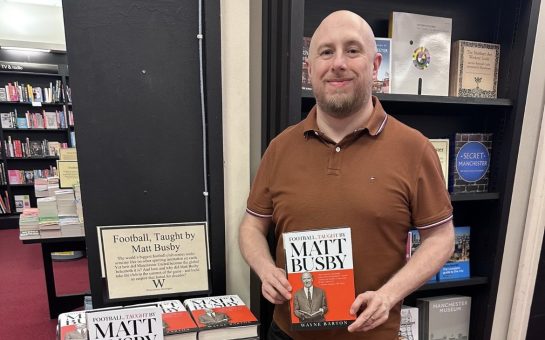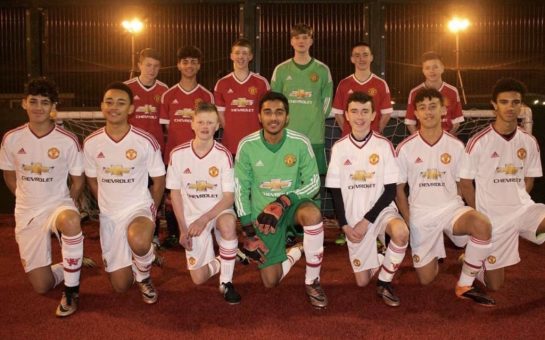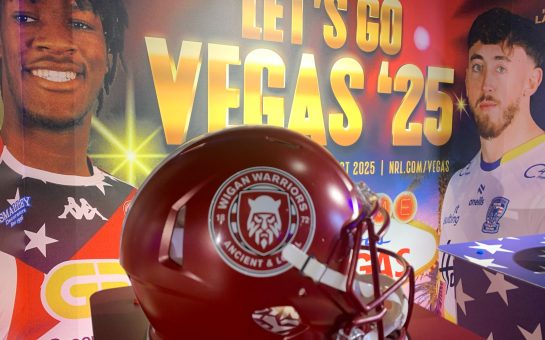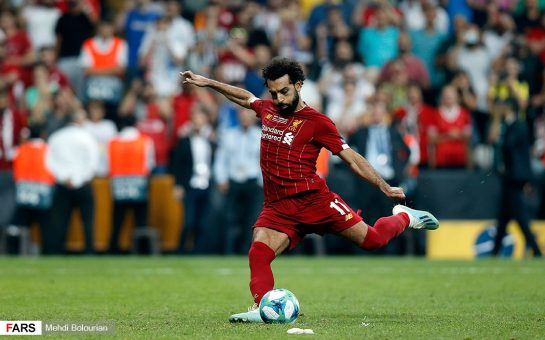Former Manchester United star John Aston Junior believes football has lost some of it’s entertainment value in the modern era as teams have become obsessed with winning at all costs.
Aston Junior was speaking to MM at the premiere of Busby, a new film about legendary United boss Sir Matt Busby, who he played under during a seven-year spell at Old Trafford.
Busby documents the life and success, as well as the struggle of Manchester United’s chief influencer in the twentieth century, and last week, the new Everyman cinema on Quay Street hosted the first screening of the film at a red carpet event.
A selection of former United players who knew Sir Matt Busby so well attended the event, including Aston Jr who played for United between 1965 and 1972.
Aston told MM: “He [Busby] was a great visionary, and what he had was a belief in youth. He collected the best players after the war from all over the country. People like Bobby Charlton is an obvious example, Eddie Coleman, Duncan Edwards.”
“He got all his players together from different parts of the island [Britain] and taught them HIS way of playing football – the correct way I think.
“What he was a great believer in was entertainment. That’s gone out of the game a little today where winning is everything. But I think he revolutionised the game that way.”
Busby took the United job in 1945, a year where much of Britain and the full continent of Europe was traumatised in the context of the immediate aftermath of World War Two.
Still threatened by the Cold War between the United States and the Soviet Union, the world was still a dangerous place in the post-war period but the beautiful game of football was the best distraction for everybody.
The game was rapidly developing into the best game in the world, and its chief pioneer was a man from Glasgow who went by the name of Matt Busby.
“In the late 60s, the world was becoming colourful because after the austerity of the war and so on fashions changed, it was great. There were [night]clubs in Manchester, and Matt embodied that in his football,” he said.
“He used to like to go out for a drink as well, so he was really part of the Manchester scene.”
He certainly was a part of the Manchester scene, and a big part of it.
Everyone in the city of Manchester was falling in love with football in the 1950s and 60s, new ideas came about and playing the game was becoming much more popular and enjoyable largely due to the impact Busby was having at the time.
The term ‘the Matt Busby way’ was becoming coined and according to Aston, it became the ‘correct way’ to play football from the mid-twentieth century onwards.
“The ‘Matt Busby way’ was: first of all to play football in what he [Busby] considered the ‘correct way’ – you had to attack.
“Nobody ever wants to concede goals, but ‘if you concede two, we’ll score three.’ That was okay by him.
“So he was always very fair with his players. He encouraged us to move forward all the time, and that was the great manager he was.”
Aston played in one of the best teams to ever grace the English and European game – United’s 1968 European Cup-winning team which featured United’s ‘Holy Trinity’ of Sir Bobby Charlton, George Best and Denis Law. But United’s best and most dominant era in English football was yet to come.
Between 1993 and 2013, Sir Alex Ferguson won 13 top division titles to take United’s number of top-flight titles to 20 – eclipsing Liverpool’s previous record of 18.
Both Busby and Ferguson were given time to achieve their success and cult status which helped United to bounce back, and Aston believes United will bounce back again if they give current boss Ole Gunnar Solskjaer the same remedy.
“The biggest thing I think for United bouncing back is, I think we could look back in two or three years time and say it’s just starting now.
“But the manager need TIME. Matt Busby had time because time was plentiful in those days.
“Sir Alex got time through the directors, and if Ole gets time I think we’ll be back again.”



